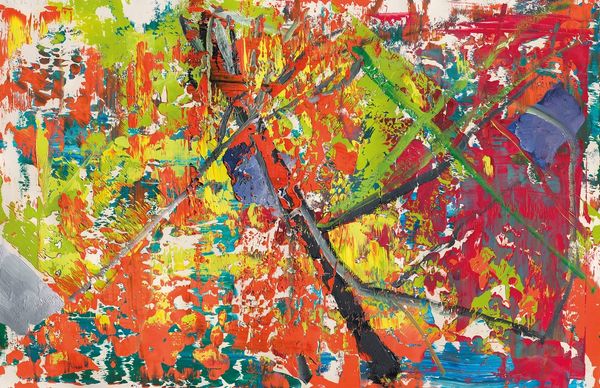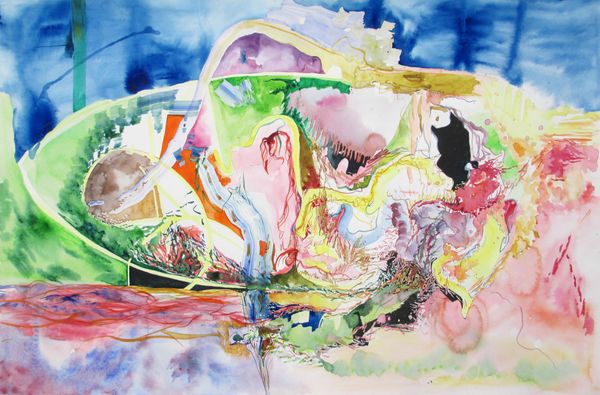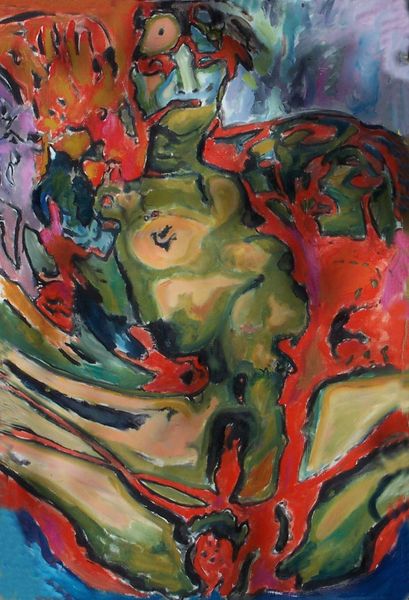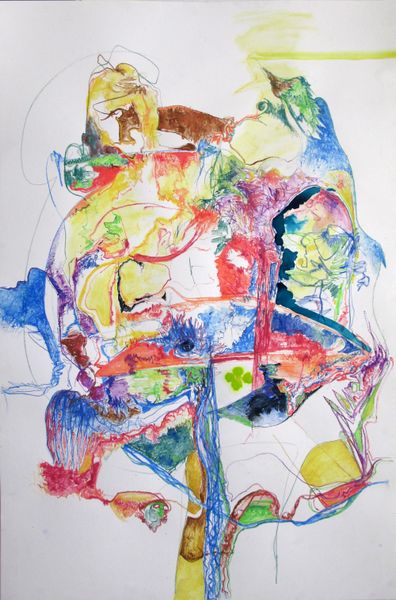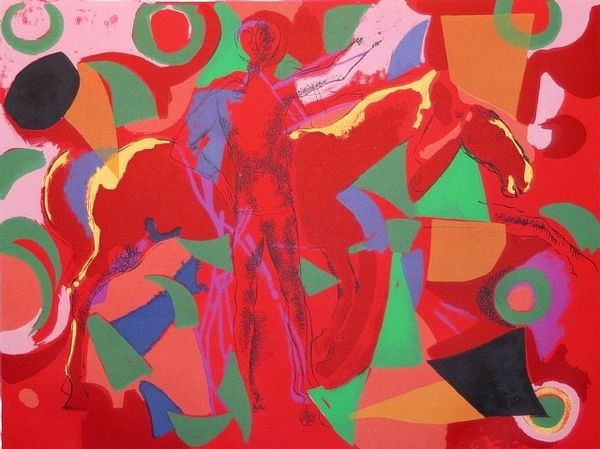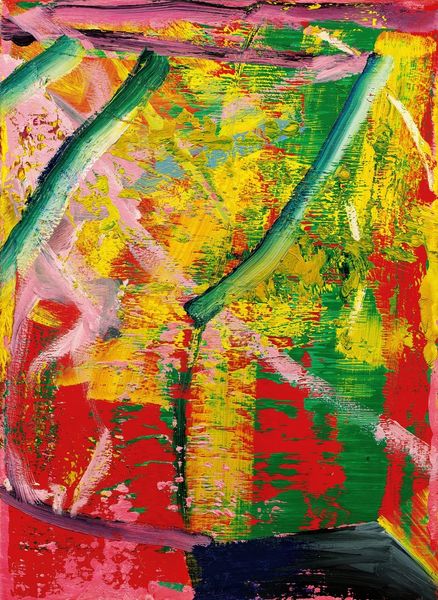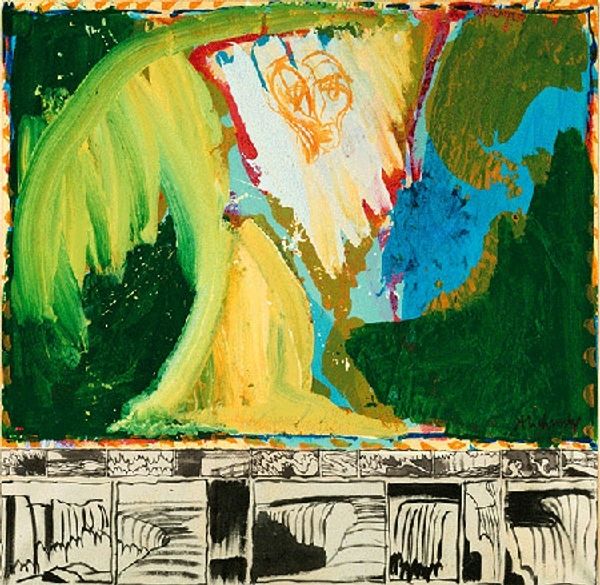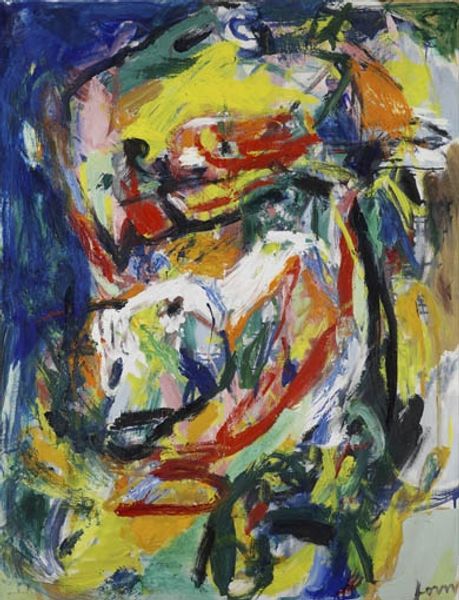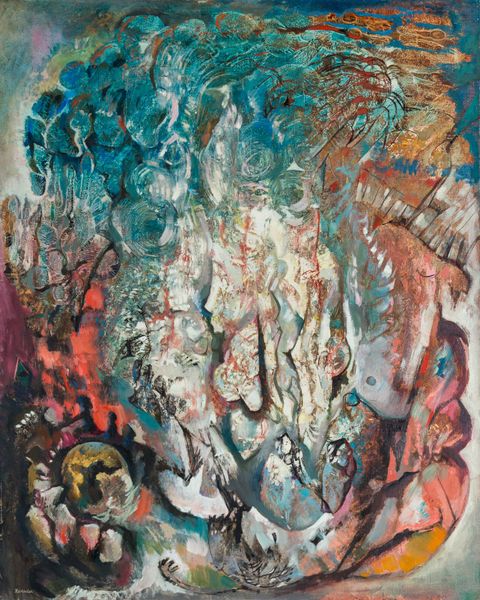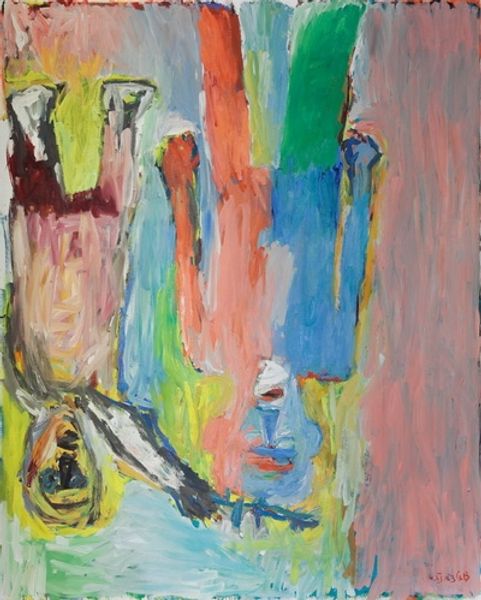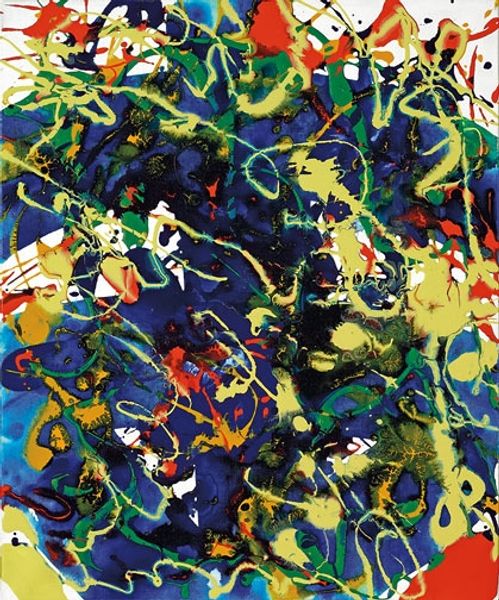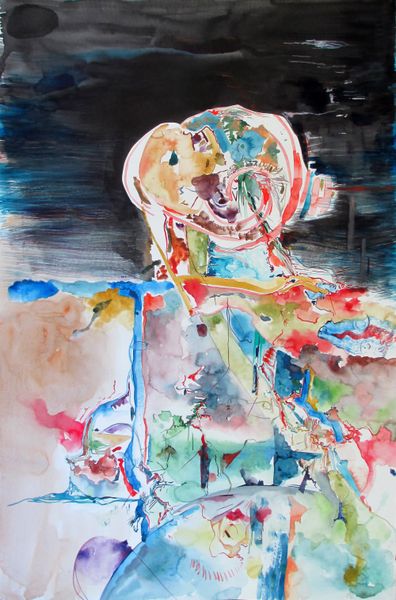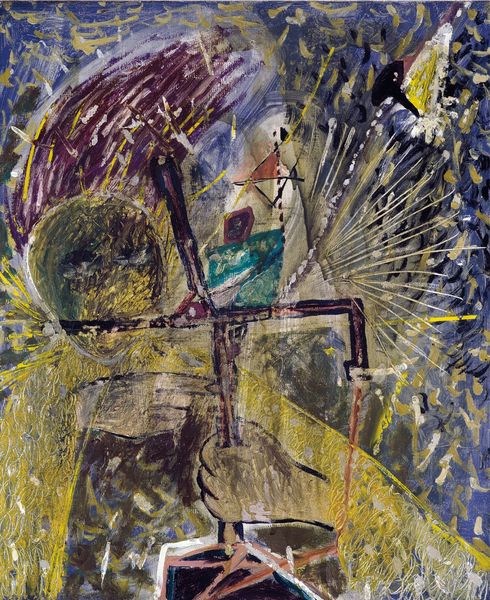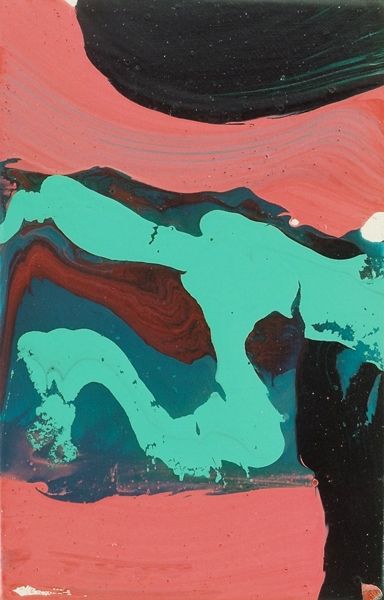
Dimensions: 91.44 x 60.96 cm
Copyright: Creative Commons NonCommercial
Editor: Right, so this is Justin Earl Grant’s "Mid Summers End," from 2018, executed in acrylic on canvas. I'm immediately drawn to its vibrancy, the layering of color. It's almost chaotic, but in a visually compelling way. I’m wondering, with such bold use of abstraction and expressionism, what social or cultural ideas do you see the artist exploring? Curator: It's interesting you pick up on that controlled chaos. I see this work in conversation with a history of artists wrestling with the representation of subjective experience, particularly in the face of increasing industrialization and social upheaval. Does this canvas remind you of other movements from that era? Editor: Thinking about how abstract expressionism often felt like a very individualistic pursuit… yes, but also perhaps reminiscent of Surrealism with its focus on automatism. Curator: Precisely. It makes me wonder how the socio-political climate influenced this particular piece. What were the prevalent discourses around landscape and identity in 2018? Editor: Climate change was definitely at the forefront, and there seemed to be growing unease about environmental issues. Maybe this chaotic landscape reflects that anxiety. Curator: An interesting thought. And how might that reading challenge or reinforce existing institutional narratives about landscape painting and our relationship with nature? The very title, “Mid Summers End,” carries a melancholic implication, doesn't it? Is this commentary or observation? Editor: Definitely melancholic. Perhaps it's both. This work speaks to environmental anxieties while questioning established romanticised versions of natural spaces. Curator: Yes, that's what resonates with me – that interplay between personal expression and broader societal anxieties. By understanding its place within these historical currents, it becomes even more poignant, a visual record of a specific moment in time, influenced by, and hopefully influencing those around it. Thank you for making that journey with me. Editor: And thank you for this analysis – it's certainly changed how I interpret this fascinating, evocative piece.
Comments
No comments
Be the first to comment and join the conversation on the ultimate creative platform.
